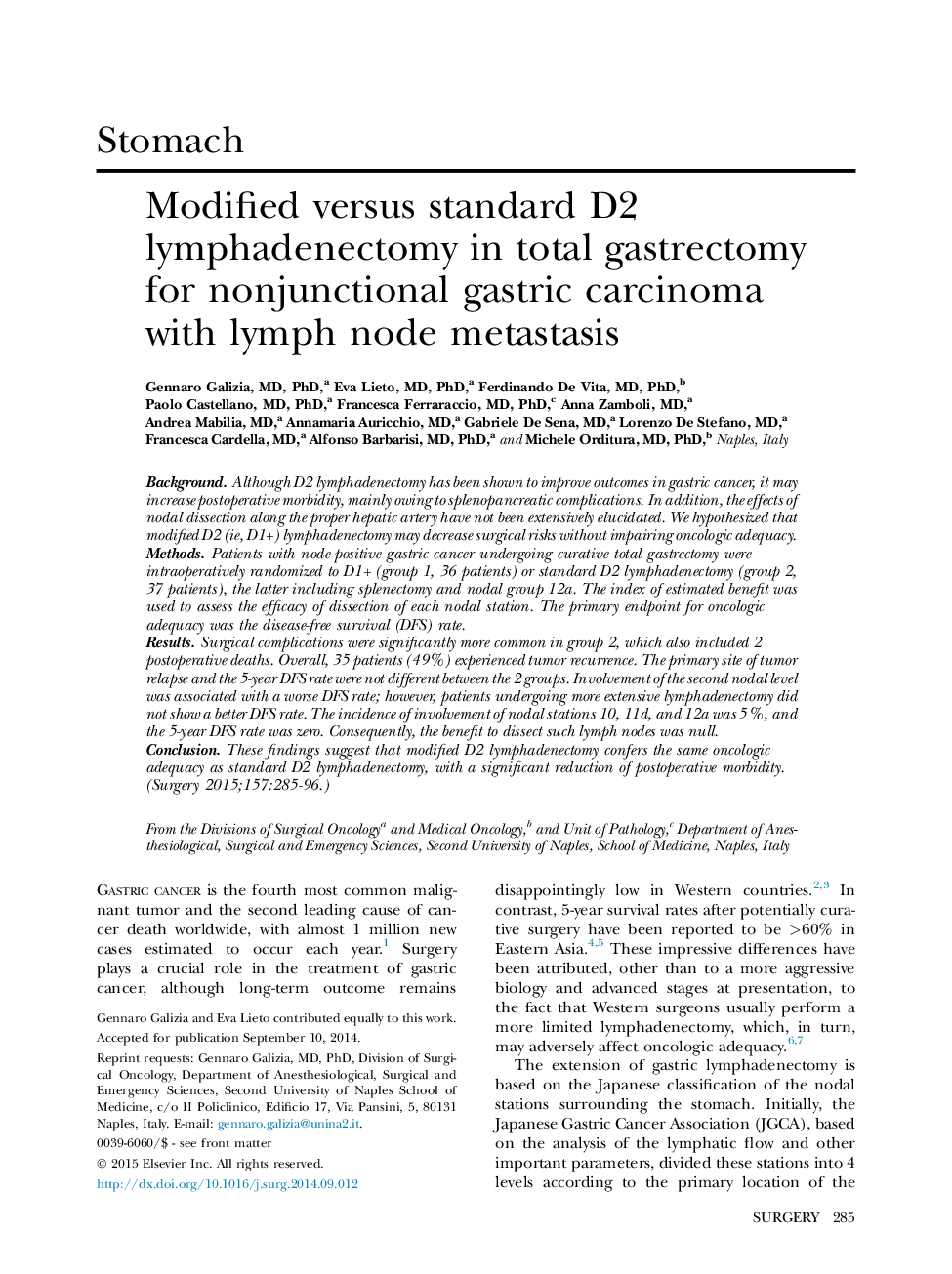| Article ID | Journal | Published Year | Pages | File Type |
|---|---|---|---|---|
| 6255481 | Surgery | 2015 | 12 Pages |
BackgroundAlthough D2 lymphadenectomy has been shown to improve outcomes in gastric cancer, it may increase postoperative morbidity, mainly owing to splenopancreatic complications. In addition, the effects of nodal dissection along the proper hepatic artery have not been extensively elucidated. We hypothesized that modified D2 (ie, D1+) lymphadenectomy may decrease surgical risks without impairing oncologic adequacy.MethodsPatients with node-positive gastric cancer undergoing curative total gastrectomy were intraoperatively randomized to D1+ (group 1, 36 patients) or standard D2 lymphadenectomy (group 2, 37 patients), the latter including splenectomy and nodal group 12a. The index of estimated benefit was used to assess the efficacy of dissection of each nodal station. The primary endpoint for oncologic adequacy was the disease-free survival (DFS) rate.ResultsSurgical complications were significantly more common in group 2, which also included 2 postoperative deaths. Overall, 35 patients (49%) experienced tumor recurrence. The primary site of tumor relapse and the 5-year DFS rate were not different between the 2 groups. Involvement of the second nodal level was associated with a worse DFS rate; however, patients undergoing more extensive lymphadenectomy did not show a better DFS rate. The incidence of involvement of nodal stations 10, 11d, and 12a was 5%, and the 5-year DFS rate was zero. Consequently, the benefit to dissect such lymph nodes was null.ConclusionThese findings suggest that modified D2 lymphadenectomy confers the same oncologic adequacy as standard D2 lymphadenectomy, with a significant reduction of postoperative morbidity.
